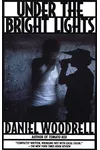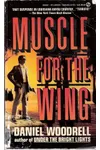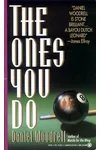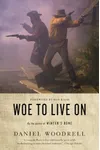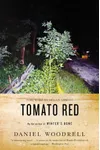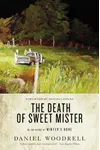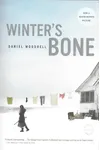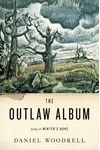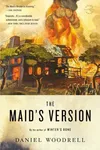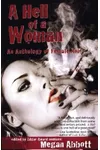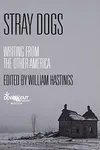Picture an American storyteller who spun gritty tales of the Ozarks, blending crime and raw humanity—meet Daniel Woodrell! Born in 1953 in Springfield, Missouri, he’s the mastermind behind the 'country noir' genre, a term he coined to capture his dark, poetic crime novels. His breakout hit, Winter’s Bone, became an Oscar-nominated film, thrusting this Ozarks bard into the literary spotlight.
With a knack for vivid prose and unflinching realism, Woodrell paints the Missouri Ozarks as both a character and a canvas. His stories dive deep into the lives of tough, flawed folks navigating poverty, loyalty, and survival. Let’s explore the life, works, and lasting impact of this literary gem!
The Making of Daniel Woodrell
Daniel Woodrell grew up in the rugged Missouri Ozarks, a landscape that would shape his storytelling. At 17, he dropped out of high school to join the Marines, only to be discharged for drug use. Undeterred, he later earned a BA from the University of Kansas and an MFA from the Iowa Writers’ Workshop. These experiences—grit, rebellion, and education—forged his unique voice. Inspired by literary giants like Faulkner and Hemingway, Woodrell began crafting stories that married hard-boiled crime with the soul of the rural South.
Daniel Woodrell’s Unforgettable Stories
Woodrell’s novels are lean, lyrical, and packed with tension, earning him comparisons to Flannery O’Connor and Cormac McCarthy. His 1987 novel, Woe to Live On, a Civil War-era tale, was adapted into Ang Lee’s 1999 film Ride with the Devil, showcasing his knack for historical depth. Give Us a Kiss (1996) introduced 'country noir,' a gritty blend of crime and rural life, centered on a fugitive’s chaotic homecoming.
Winter’s Bone (2006) remains his crown jewel. This stark tale follows 16-year-old Ree Dolly’s quest to find her missing father in a meth-ravaged Ozarks community. Its raw prose and fierce heroine captivated readers and inspired Debra Granik’s 2010 film, which launched Jennifer Lawrence to stardom and snagged four Academy Award nominations. Tomato Red (1998), another standout, won the PEN West Award for its vivid portrayal of desperate dreamers, and was adapted into a 2017 film.
Woodrell’s style is unmistakable: short, sharp sentences, Southern dialect, and a keen eye for the Ozarks’ beauty and brutality. His characters—outlaws, dreamers, survivors—grapple with blood ties and moral ambiguity, making his stories timeless yet grounded in place.
Why Daniel Woodrell Matters
Daniel Woodrell redefined crime fiction by rooting it in the Ozarks’ stark reality, elevating 'country noir' to a literary art form. His work captures the struggles of marginalized communities without judgment, offering a lens into America’s overlooked heartland. The success of Winter’s Bone brought global attention to his craft, inspiring a wave of rural noir in film, TV, and literature. Critics hail him as a 'poet of the Ozarks,' and his influence endures in writers tackling gritty, place-driven stories.
Woodrell’s legacy lies in his ability to find humanity in hardship. His novels aren’t just crime tales—they’re meditations on survival, family, and the land. By staying true to his roots, he’s carved a niche that’s both niche and universal, proving that small-town stories can resonate worldwide.
- Born: March 4, 1953, Springfield, Missouri
- Key Works: Winter’s Bone, Tomato Red, Woe to Live On, Give Us a Kiss
- Awards: PEN West Award (1999), Sundance Film Festival Grand Jury Prize for Winter’s Bone adaptation (2010)
- Fun Fact: He lives in West Plains, Missouri, with his wife, novelist Katie Estill.
Snag Winter’s Bone or Tomato Red and dive into Daniel Woodrell’s haunting country noir world—your bookshelf will thank you!
